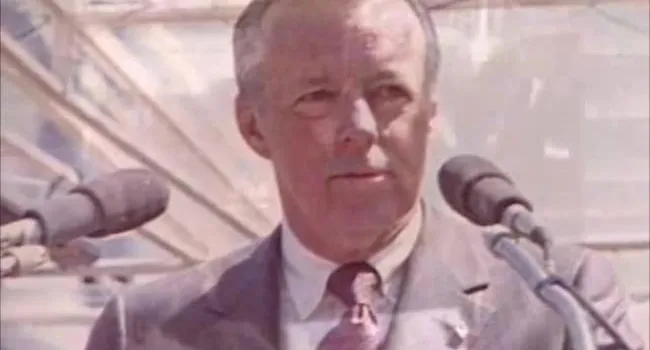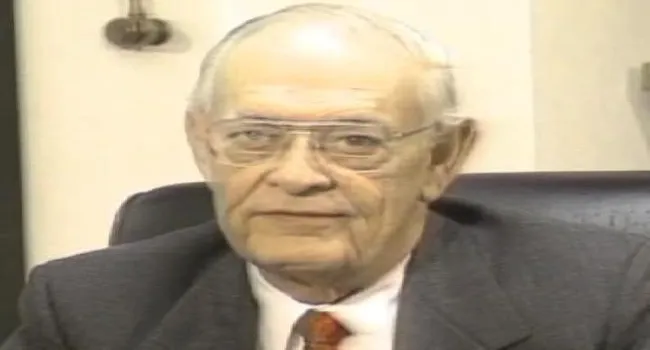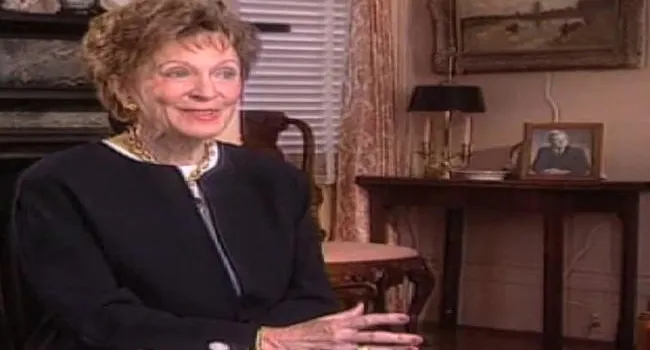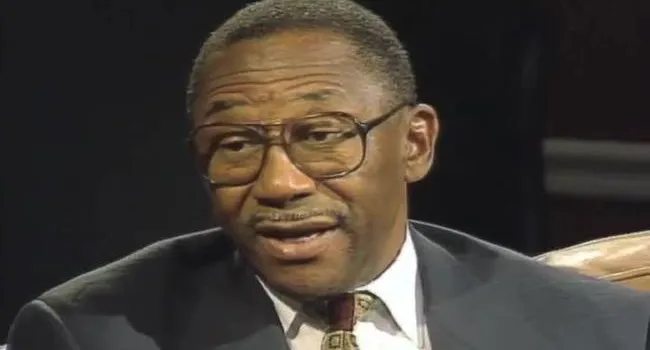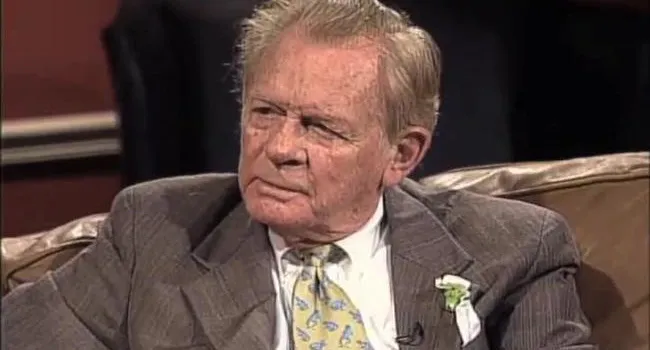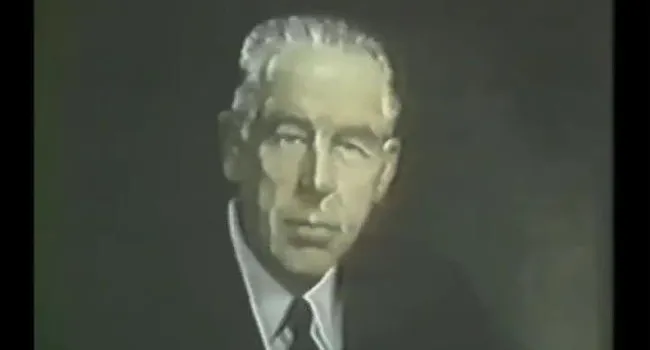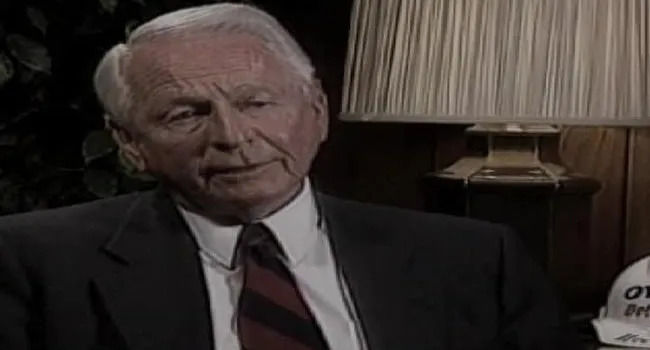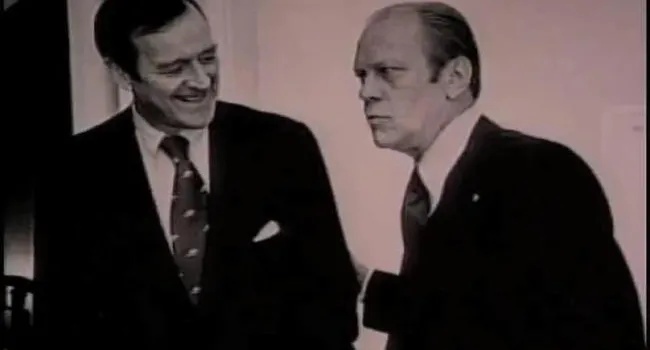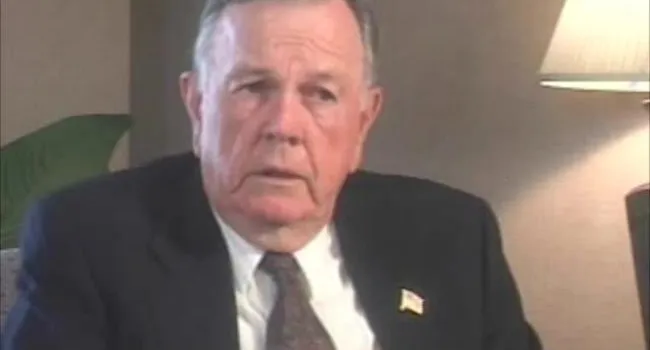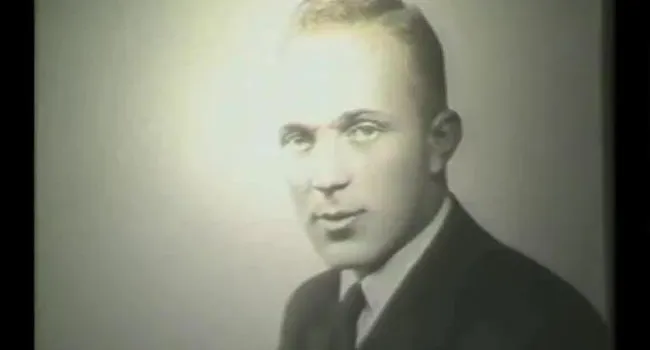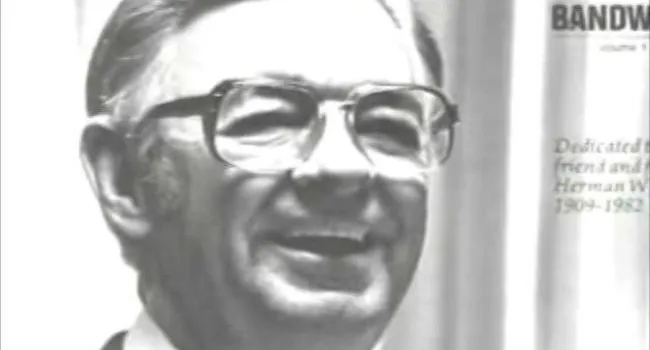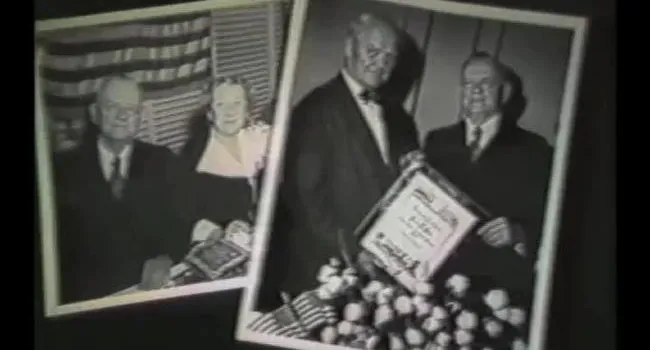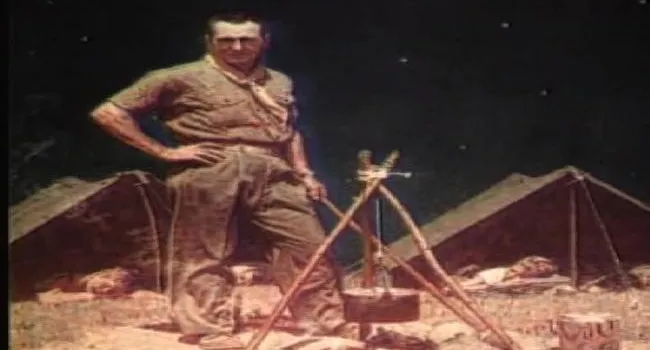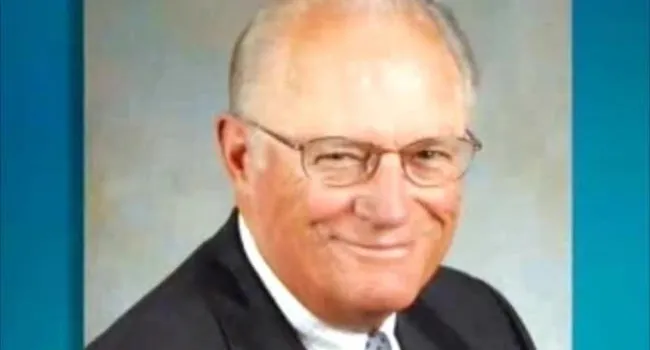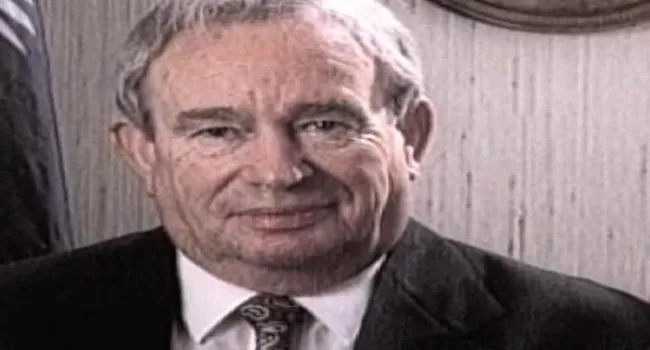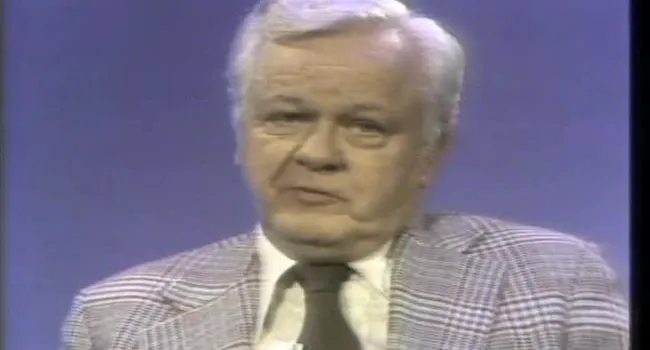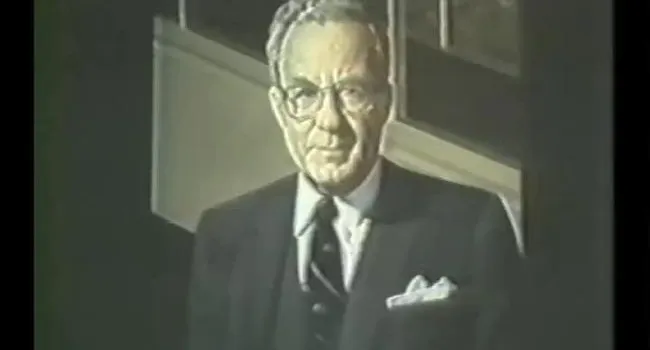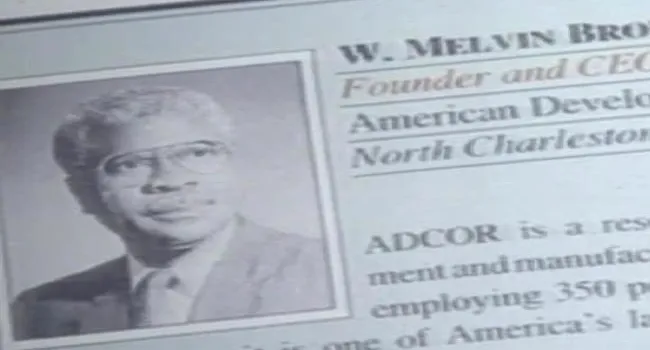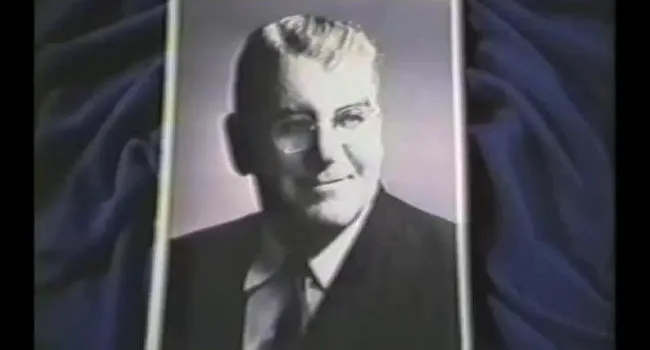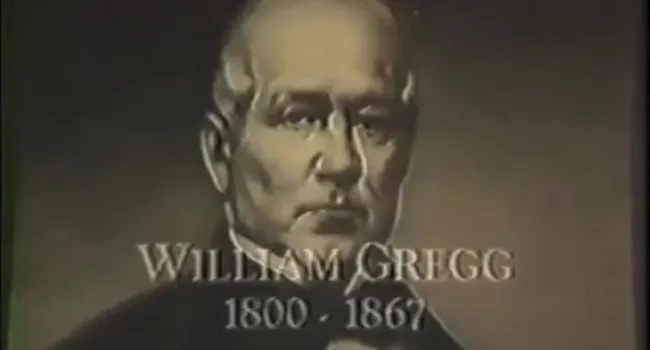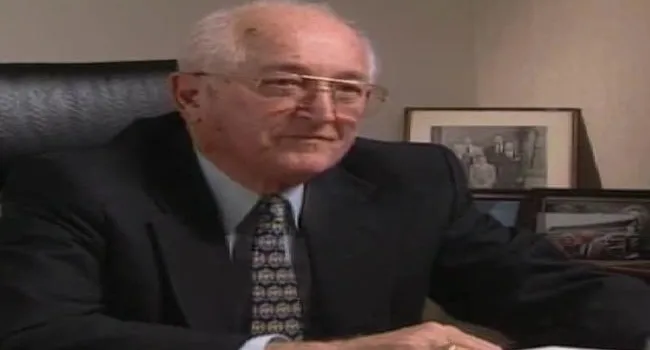Arthur M. Williams, Jr. (1914–1990)
Arthur M. Williams, Jr., was one of South Carolina's most influential businessmen during the state's profound economic changes in the 1960s and 1970s.
A prudent executive of South Carolina Electric & Gas Company for nearly 40 years, Williams anticipated South Carolina's transformation from a rural, textile-driven economy to one balanced with diverse industry, commerce, and service enterprises, and he prepared SCE&G for the future.
Arthur Middleton Williams was born September 16, 1914, in Charleston, the son of Arthur and Katherine Ward Williams. He graduated from Clemson College in 1936 with a degree in textile chemistry. Upon graduation, he was commissioned a lieutenant in the United States Army Cavalry and went on active duty for two years.
Williams entered the University of South Carolina Law School in 1938 and graduated magna cum laude in 1942. He returned to active duty in the Armed Forces but was discharged in 1943 with a medical disability, a hip injury from an Army polo match in 1937 that troubled him the rest of his life.
After his military discharge, he returned to Columbia and taught law courses at USC. In 1944, he went to work for Columbia-based SCE&G as director of personnel and industrial relations and held successive positions as staff counsel, vice president and general counsel, president, chief executive officer, and chairman of the board of directors. He retired as CEO in 1979 and became chairman emeritus of the board in 1982.
Williams oversaw major expansion of SCE&G's facilities and services, including nuclear power to provide essential energy for growing communities and to fulfill increasing power demands of new and expanding industries.
SCE&G became a billion-dollar industry during Williams' administration. Electricity customers increased by an average of 8,000 a year and natural gas customers by 5,000 a year. Twenty natural gas communities were added to SCE&G's service, bringing the total to 70, and its generating capacity increased from 1,176 megawatts in 1966 to 3,359 in 1979.
Williams had a leading role in easing long-standing hostilities in South Carolina between investor-owned utilities and rural electric cooperatives, clients of the state-owned South Carolina Public Service Authority, or Santee Cooper. For many years the cooperatives and the private utilities bitterly contested service territories, in the courts and in the Legislature.
In 1968, Governor Robert E. McNair asked Williams to get the contenders to work out agreeable guidelines on service areas; they did, and the Legislature enacted a law that has brought relative calm.
After so many years of controversy between public and private power interests, an agreement between Santee Cooper and SCE&G to share the construction and use of nuclear power seemed implausible. But South Carolina voters approved a constitutional amendment to let public funds be invested in a private utility, and the Legislature agreed.
Williams and Robert S. Davis, chairman of Santee Cooper, pulled it off. The two had served together for several years on the Richland County District One School Board of Education and trusted each other. That made it possible for them to reach an agreement on a complicated arrangement. The Summer Nuclear Plant generated more electricity than SCE&G needed, and the deal got Santee Cooper cheaper power than a costly new generating station could have provided.
Williams' record of public service was extensive, but he considered his 14 years on the Richland school board his most rewarding. He also was a president of the South Carolina State Chamber of Commerce, the Greater Columbia Chamber of Commerce, a member of the board of the National Association of Manufacturers, president of the Southeastern Electric Exchange, and president of the board of South Carolina Episcopal Home at Still Hopes.
He actively supported the University of South Carolina, serving as president of USC's Research and Development Foundation. He led a Summit Fund drive that raised $38.8 million for USC and served on the College of Business Administration and School of Law foundation boards.
USC presented Williams an honorary doctoral degree in 1981. Ten years earlier, he received USC's Algernon Sydney Sullivan Award for distinguished service. In 1975, he was given the Distinguished Alumni Award. And Clemson University awarded him an honorary doctoral degree in 1985.
His public service included membership on the first State Human Affairs Commission, the Southern Interstate Nuclear Board, the Benedict College and Converse College boards of trustees, Providence Hospital Foundation Board, Governor's Mansion Foundation, South Carolina Nature Conservancy board, and the presidency of the Rotary Club, Family Welfare Services, Red Cross, USO, and the United Way.
He was a director of the South Carolina National Bank, South Carolina National Corporation, SCE&G, and the Liberty Corporation. He belonged to local, state and national Bar associations and served several terms on the vestry of Trinity Cathedral. In 1950, he was presented a Freedom Foundation award for patriotism.
He was married to the former Katherine Murphy, and they were the parents of three daughters, Katherine Mahon, Pat Boykin, and Elizabeth Williams, and the grandparents of four.
Arthur Williams died July 9, 1990.
He was inducted into the South Carolina Business Hall of Fame in 1991.
© 1999 South Carolina Business Hall of Fame

